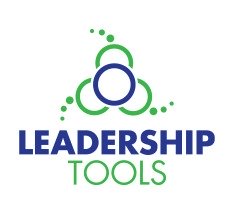Change-Tools
Online leadership change-tools that can help your with your management and leadership efforts.

Donna Rae Scheffert, author, is President of the Consulting firm Leadership Tools and a retired Leadership Development Specialist from the University of Minnesota Extension. She spent over 20 years creating leadership information, tools and training. She is the owner of online-leadership-tools.com and
Change Leadership
Think about how .....

Change can be welcomed - consider the butterfly.
Change can be dreaded - ask someone who lost their job.
Change can be natural - let it flow.
Change can be managed - make it work for the group.
Are you experiencing common reactions?
When you are confronted with adapting or modifying something do you:
• Feel awkward, ill at ease and self-conscious?
Focus on what you have to give up, not on what you might gain?
• Feel alone even if others are going through similar challenges?
• Feel capable of being able to handle only a few changes at a time?
• Become concerned you don’t have enough resources to adapt successfully?
• Revert to old behaviors if the pressure for change does not continue?
Remember: Different people display different levels of readiness.
Source: Kenneth Blanchard
What change-tools are essential?
Some leaders work to activate members of a group toward a new goal or direction. To take a strategic approach consider:
• Enhancing team members ability to initiate and manage modifications and adaptations.
• Giving people the tools to increase their effectiveness.
As you help a group examine the issue they hope to address and agree that it is something they can control or have an impact on, the lessons of experience of the people in the group can be helpful. You might ask group members:
What is your experience or history with previous efforts?
How do you feel about modfying or adapting something?
It is important to remember that people’s attitudes will determine, in part, what they do.
How does your attitude matter?

How we think about it is a matter of perspective. For example, do you think of it as:
1. A loss of control
Disruptive, destructive, alters stability, continuity, tradition
2. Innovations that increase productivity
Leads to development, improvement, progress
The paradox or seemingly contradictory aspects:
For most, it is easy to initiate and difficult to guide so that it accomplishes what you set out to do.
Peter Senge has found that most people don't resist change, they resist being changed.
Sidney Harris thinks our dilemma is that we hate it and love it at the same time. What we really want is for things to remain the same, but get better.
Check out these resources about:
What is resiliency and why is it important?

Resiliency is a good thing. The more you have the better able you are to cope with challenges.
Are you a tennis ball or an egg? A tennis ball can drop and bounce back. An egg breaks.
"Resiliency is…characterized by patterns of positive adaptation in the context of significant adversity or risk.” Resiliency description in Goethals, G., Sorenson, G. & Burns, J.M. (2004). Encyclopedia of Leadership, Sage Publications, p. 1320 – 1324.
Personal Antecedents for Resiliency
People with these characteristics are more likely to have high levels of resiliency. This is a powerful change-tool. Rate yourself from 1=low to 10=high
______Cognitive Abilities
______Positive Temperament
______Positive Self-Efficacy (sense of being able to do things)
______Faith
______General Positive Outlook on Life
______Emotional Stability and Self-Regulation (control emotional responses)
______Sense of Humor
______General Appeal to Others
Relational Antecedents for Resiliency
______Caring support and mentoring
______Prosocial and rule abiding peers
______Collective efficacy in the group (group feels it can make choices and changes)

Bring in an experienced expert when you need to:
• Align your team in a strategic direction
• Plan and run a challenging meeting
• Participate instead of lead a meeting or retreat
• Learn contemporary leadership and management concepts
Facilitation. Training. Strategic Planning.
Donna Rae Scheffert, President
809 Mayflower Ct.
Northfield, MN 55057
Let me assist you and your organization. Call me at 612.360.4484 Or email at leadershiptools@charter.net
